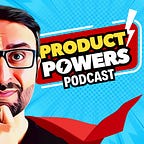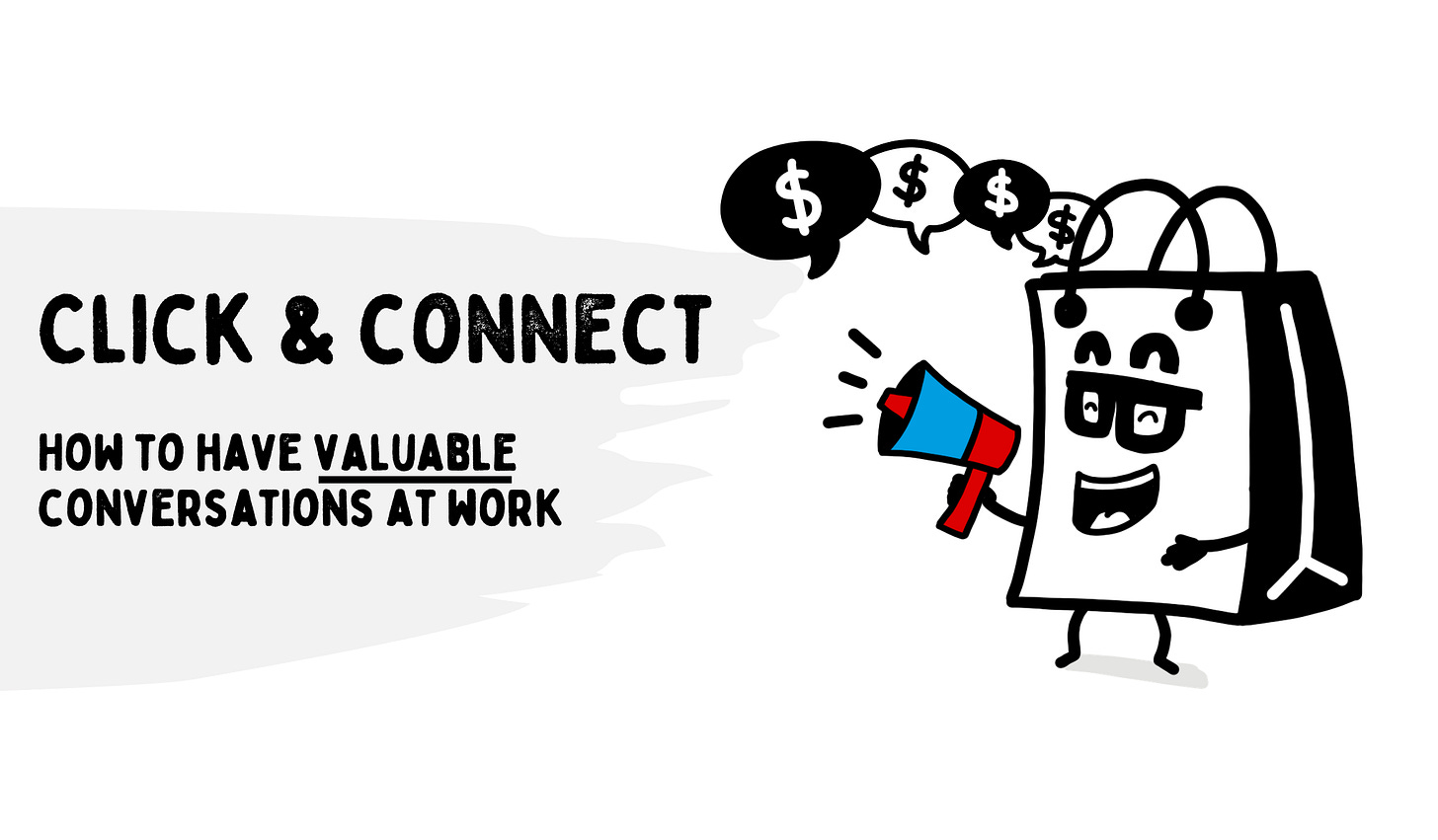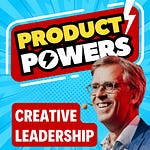Paddy’s talk at the Festival of Business Analysis (Australia Chapter of the IIBA)
During childhood, we are told not to talk to strangers. Paddy took this advice literally and became a professional introvert. But when he became a Business Analyst, he was encouraged to engage with everyone. Having the ability to connect, communicate, and collaborate effectively gives us new superpowers. In this episode, Paddy shares his experiences on how he overcame his conversational fears and became a public speaker, trainer, podcaster and co-host of one of the largest Visual Thinking communities on the planet.
👉🏽 How to conquer your conversational fears
👉🏽 How to develop a connection mindset
👉🏽 Non-conventional techniques for effective engagement
So don’t just click with your stakeholders, let’s build deeper connections through powerful conversations!
TED Talk mentioned in the episode: Click Here
Email Paddy with your key takeaways: pardeep_dhanda at hotmail.com
Paddy Dhanda (Host of the Superpowers School Podcast)
Paddy is passionate about helping people build better human skills to be more productive and thrive in today’s fast paced world. He graduated from the worst performing High School in the UK. He has gone on to advise CEO's and Executives on effective innovation strategies to some of the biggest brands on the planet, as well as guest lecturer at the University of Birmingham MBA programme.
Paddy is currently the Agile Practice Director at the UK’s largest tech training organisation and is the former Head of Agile Learning for a global investment bank, where he rolled out Agile education to over 100k agilists. He is also passionate about Visual Thinking and creativity and co-founder of the one of the largest Visual Thinking Meetup communities (The Visual Jam) in the world.
Paddy also hosts the Superpowers School podcast exposing the human side of tech. He was recently nominated as a finalist for the Best Content Creator at the Creative Industry Awards.
⚡️ In each episode, Paddy Dhanda deep dives into a new human Superpower and gives practical advice on how you can apply it immediately.
👉 Sign-up to Newsletter: https://www.superpowers.school/subscribe
👉 YouTube: https://www.youtube.com/c/paddydhanda/
★ BUY ME KO-FI ★
If you enjoy the podcast, then you can donate a small amount here as a token of your appreciation: https://ko-fi.com/paddydhanda
Transcription:
[00:00:00] Paddy Dhanda: Hello friend. It's Paddy here. I wanted to remind you that you can subscribe to the newsletter of this podcast by simply visiting. www.superpowers.school. So you'll be notified of all future episodes. As well as some bonus resources that are be sharing over the coming months.
Today, we're doing things a little differently. I'm sharing a recent talk. I recorded when I presented at the Festival of Business Analysis for the Australia chapter of the international Institute of business analysis. Unfortunately, I didn't get to physically go to Australia. But I did manage to record the talk so I could share it with you today. It's titled click and connect how to have valuable conversations at work. I share my personal experiences of how I overcame my battle. As a professional. Introvert to becoming addicted to conversations. I would love to know your key takeaways. So please do drop me an email, which I'll share in the show notes. I hope you enjoy this episode.
From the city of the Peaky Blinders, Birmingham, England, I would like to introduce you to Paddy Dhanda As the world becomes more automated and the robots take over, it's imperative that we build the right human skills for the future. So pull up a chair, grab a samosa or two and make yourself very uncomfortable.
[00:01:44] Paddy Dhanda: It was the year that facebook was launched. I was three years into my career as a software engineer and I was trying to figure out that one big question. When will England ever win the Football World Cup ever again? No, actually it was a bigger question than that. In fact, I'd just returned back from India, having trekked up one of the highest temples in the Himalayas.
And I was feeling kind of spiritual. I was asking myself, what is my purpose? And my first assignment, when I got back to work, was to pair up with a lady called Natalie, and she was a mature student. She had worked in sales for years and years. And the two of us had a simple task. It was to capture some requirements from a really difficult stakeholder whose name was Malcolm.
And so I thought this was my calling. This was the reason I was put on the planet. Now, the problem was Malcolm. I'd fallen out with our IT project manager and at a previous meeting, the team had spent all night getting ready for a presentation with Malcolm, but within five minutes of walking in the room, Malcolm had stormed out and it was at that moment that my life almost flashed before my eyes.
I was thinking, how am I going to survive my encounter with Malcolm? But Natalie, on the other hand, was super happy. She was relishing the challenge. And she was confident that we would succeed.
But to cut a long story short, Natalie and I eventually did manage to win Malcom over. And we successfully delivered the project. But as I reflected, it wasn't because of all of the technical skills that I had acquired. It was all down to us being able to connect with Malcolm.
And it was a connection at a human level. For example, when we met him for the very first time, Natalie invited me to sit next to Malcolm rather than sitting opposite him, which we often do when we attend face to face meetings. After every meeting, Natalie would phone Malcolm and ask him how things had gone.
Could we do things differently next time? And it had created this deeper level connection that Malcolm had never had with the previous IT team.
The Importance of Connection
[00:04:07] Paddy Dhanda: So, in this session, I'm going to be sharing some insights about the importance of connection. and how we have valuable conversations at work. We can all have lots of social media friends, and we may have lots of colleagues that we say hello to every morning. How many of them do we actually know? It's super important that we don't just click with people but we build a deeper connection because that's when we unlock the magic.
Personal Journey and Background
[00:04:37] Paddy Dhanda: I graduated from the worst performing high school in the UK. And I know that because that was the year that the UK had decided to put out league tables, high schools. And out of all of those league tables, My school was pretty much at the bottom. I would say I was a bit of a professional introvert.
I will talk a bit more about that in a moment. But now... I would say I'm a conversational addict. I'm one of those annoying people now that if you take me anywhere, I'll end up speaking to a ton of people. And my wife absolutely hates me for this, especially when we're on holiday. And I've been asked to go and get some drinks from the bar.
And I return about half an hour later because I've made lots of friends.
When I was growing up, I grew up in a town called Warwick. And if I had to compare Warwick to any movie, it would probably be Harry Potter. Because Warwick has this very traditional feel about it. It has a big castle, right, in the middle of the town. And everybody is super friendly and knows each other.
And then, just before I went to high school, we moved to Birmingham, which is the city of the Peaky Blinders, if anyone's seen that program. But Birmingham is very much on the opposite spectrum of Warwick. It was a place where only the strongest survived, a bit like the movie Jurassic Park.
And I remember my very first day when I went to my high school in Birmingham. I was scared stiff. Nobody had prepared me. for being able to talk to these other children that I had nothing in common with. And I think that was my first realization, that no one had actually taught me how to connect with others or engage with others.
As we grow up, all good parents tell us, and they do the responsible thing, they say, do not talk to strangers, which is great advice. And I was an only child, so I had even less opportunity to speak to people because I didn't really have many kids around me at home. I'd be the last person to put up my hand in class and I would get scared stiff if anybody ever asked me to do a presentation in front of a group of people.
In fact, it was so bad that when eventually I did meet my wife, I panicked and I proposed to her within four hours of meeting her. Now, luckily, we've just celebrated our 21st wedding anniversary on Friday. So things... did work out. But I was just surprised that this girl wanted to talk to me. And I panicked and I decided I would just ask her to marry me because it would save me a whole load of conversation.
The Evolution of the Connection Economy
[00:07:16] Paddy Dhanda: Let's explore the importance of connection through various economic eras. The industrial economy, which was between the 18th century to the mid 20th century. In the industrial economy, people moved to cities and it created this emergence of a more interconnected society. However, it really posed a lot of challenges for people, especially in terms of their personal relationships, due to the demands of those factories.
And then, in the late 20th century, up until now, we started to experience the information economy. This is where we've seen a surge in technology, the internet, and we should be much more connected. Based on all of the technology around us. And then, as we now move into the more recent economy, which is really popularized by the famous marketeer Seth Godin, he calls this current era the connection economy.
And he talks about if we're to really flourish in today's society, it's going to be the people that are able to build and leverage connections. And that's not just personally, but also within businesses as well. And it's all about networking, building trust. fostering meaningful relationships. You've probably heard the old saying it's not what you know but who you know.
There's several startups that hopefully we recognize on this slide, and these organizations don't really sell a physical product.
They built their whole business model off of connection. So Airbnb connects travelers with hosts who have spare rooms in their properties. We have Uber who connects drivers with passengers. And obviously LinkedIn, their whole business model is to connect individuals and businesses and create those social networks for professionals.
And I refer to these as the super connectors.
Understanding the Fear of Rejection
[00:09:20] Paddy Dhanda: So a quick question for you What might be holding you back from speaking to a stakeholder in order to start building meaningful connections? Imagine if I picked on one of you as an individual right now, and I asked you to explain this slide in front of all of the people that are on this call.
Now, I'm pretty sure that would be quite an uncomfortable experience for most of us. What actually happens in our brains if we're put into an uncomfortable situation? The first thing the brain does is it categorizes a situation as being uncomfortable because it's trying to work out, is this a potentially threatening situation?
And this perception comes from past experiences, maybe some cultural norms The amygdala.
which is the region of the brain that is responsible for processing emotions and threat detection kicks in. It's like a mental alarm system that flags potential danger. The amygdala signals the release of stress hormones like adrenaline and cortisol. And these hormones prepare the body for a fight or flight response.
This increases our heart rate, sharpening our focus. and diverting energy to essential functions within the body. At step four, the brain engages the prefrontal cortex, sorry this is getting a bit technical which is responsible for decision making and planning. And it assesses the situation and considers potential outcomes.
A bit like a cost benefit analysis of the brain. Then we have a decision to make. The brain searches for past experiences or coping strategies that relate to the situation. If previous experiences were positive, it might help alleviate discomfort. If past experiences were negative it might amplify discomfort.
And so, based on our assessment, the brain starts to engage in internal self talk. And... might start to get us to think about, if I proceed will I be embarrassed or will there be social judgment? Despite our decision, we will either proceed or the brain might decide I'm going to stop here. I'm not going to proceed with this situation and I'm going to avoid this or delay it for another time once we have more information.
Now, if we did proceed. Then, after the uncomfortable action is taken, the brain evaluates the outcomes, and if the experience was positive or neutral it can actually help modify the brain's responses to similar situations in the future. So, the good news is, if we repeat this exposure to uncomfortable situations, with positive outcomes, then it can actually help reshape our brain.
So we become less uncomfortable with these types of situations in the future. And for a lot of us, if we say, go and speak to a stakeholder, go and engage with a stakeholder, that can be a very uncomfortable process. So, as you can see, it's not as easy as just walking up to somebody and having a chat with them.
Changing Mindset and Overcoming Fear
[00:12:29] Paddy Dhanda: What I wanted to do in the next section of this talk was really share some of my experiences having done over 100 episodes of my podcast which equates to about 3, 000 minutes of conversation.
I'll be sharing some of the things that I've been learning as I've been going through this experience.
The starting point for any type of change or change in behavior is being able to change our mindset. Because, like I said, I was a professional introvert. I was scared stiff of going over and speaking to people and having a meaningful conversation because I had never really been prepared for that.
And so we need to change our mindset if we're feeling like that. Now, what we don't want to do is go too extreme and push ourselves too hard too early. Because the brain just won't be able to cope with that and we'll probably end up doing more damage than good. if anyone's heard of this analogy, it's called the boiling frog analogy.
I think it sums it up quite nicely. So imagine we have a frog, and I'm not advocating we do this in reality, and we put them in a pot of boiling water. They're probably gonna jump straight back out because it was too uncomfortable and the temperature was just too hot to start with.
But if we put the frog in pot of cold water and we slowly heat up the water, the frog's less likely to jump out and they may even get boiled alive because they don't notice the heat creep up on them. But it's the same with changing mindsets. If we slowly give ourselves nudges along the way, we're much more likely to then start to shift our mindset.
Now, in 1983 Lorne Whitehead wrote in the American Journal of Physics all about the domino effect. And he discovered that a single domino is capable of bringing down another domino. That's actually 50 percent larger, and I'll just play this video in the background so you can see this.
Now in this video there are 20 dominoes, but if we continued this video and we had 29 dominoes, the 29th domino would be the size of the Empire State Building, and it would get toppled over as well. So it's quite remarkable. that when we take lots of small steps, we can see huge results at the end of it.
And so this goes back to having those small nudges rather than trying to completely change the way we do things in the hope that will change our mindset. There's a great TED talk where Jie Zhang, who is the speaker in this TED talk, he did a similar experiment where he wanted to overcome his fear of rejection and he set himself a challenge.
So I'd encourage you to go and watch this video if you're interested in changing your mindset. And it doesn't just have to be about Being a more confident speaker, being able to engage with your stakeholders. It could be any new skill that you're thinking of learning. And Zhejiang goes through this process where every day he sets himself almost an impossible challenge.
But he just wants to start experiencing that whole process that we talked about there of rejection. and being uncomfortable. His hope was over time he would learn from that hopefully he gets more comfortable with rejection as well.
Through my podcasting, I have had lots of rejections. I've had many guests that I've approached who have politely declined my invitation to come on the podcast. This was actually just a few weeks ago, this particular email. And at first, I would feel quite, I guess, emotional about the rejection and I would be taking it to heart, the fact that I've been rejected.
Why has this person said no to me when I've sent them a very polite email and all I'm asking for is half an hour of their time? But actually, people are busy and we all have different priorities. And some of the people that I've been approaching are super, super busy. And they probably have many of these requests coming through.
And so how do I stand out? How do I get onto their priority list? Well, often I can't, it's really difficult. If we think about people at work, we're under so much more pressure at the moment. Our stakeholders are dealing with lots of challenges. And if we're then approaching them to ask them for some time, it can be super challenging for them to give us that time.
So try not to take things personally. But if there is somebody that you really, really need to talk to, then persevere and keep going. I had one guest, not this particular one, who had rejected me twice. And on the third time, I went out and I bought their book. I took a selfie of the book. And I listed a bunch of questions to say, I've really enjoyed your book, but these five questions have stuck in my mind.
I would love to be able to talk to you. And all I'm asking for is 15 minutes of your time. Well, as it happens, the guest replied and said, well, I'll give you 30 and I'm happy to answer your questions. Because they could see a genuine interest in their work and they were prepared to then give me their time.
Now, somebody mentioned in the chat, one of the reasons why. they might be held back in terms of approaching their stakeholders is this fear of making a mistake and This is true for many of us. We don't want to come across unprepared. Mistakes are common, but if we think about other industries and how they deal with mistakes Especially the movie industry they call these missed takes and it's a simple reframing of this word And what they do is every time they make a mistake is they re record and they learn from the previous mistake and they don't get too emotional about it.
If anything, if you look in the movies, they often have show reels of all of the outtakes, which can be quite humorous. Now imagine if we had A showreel of all of our mistakes, and we look back at that in years to come. I'm sure we would be quite amused as well. So sometimes it's a case of reframing our language and just the way we think about these mistakes.
If I do come across someone senior and I don't quite hit the mark with them, then I'll learn from that.
One of the hardest things that I found is getting comfortable with my own voice. Now, when you're editing podcast episodes by yourself, you're having to listen to your own voice for hours and hours on end. And... At first, it was extremely cringy. I've talked to a few actors who have been on the podcast as well, and they tell me the same thing.
Even though this is their profession, they cringe at the sight of themselves on the screen. They cringe at the sound of their own voices, which is actually quite remarkable. And so, this is just another aspect of... Us connecting with people, because I would say we should all record ourselves and we should all listen back to ourselves so that we really understand how we come across to other people, because our tone of voice, the energy that we put forward in our voices can tell a lot about us.
Now, if I came on this session and I was It was very monotone and I didn't really put much energy into it. I'm pretty sure you would have switched off ages ago. I hope you haven't switched off just yet either. So just by hearing our own voice, recording ourselves, listening back to ourselves, we can learn.
The Art of Starting a Conversation
[00:20:27] Paddy Dhanda: Once we've built the right conversational mindset, we've got over our fear of rejection, and we're more comfortable with our mistakes and our own voice, we need to work on an actual message. And many people will tell you, always have an elevator pitch. And the idea or the metaphor of the elevator pitch is based on if you're ever in an elevator or a lift with a stakeholder, then.
If they ask you, what do you actually do? Are we able to articulate exactly what we do in a very succinct manner? Because I don't think we often do a very good job of that, especially as BAs. And I've run BA teams in the past when people have asked me, what do you actually do for a living? I found it really difficult to articulate succinctly what a BA actually does.
And there's lots of formats you can use to help you craft your elevator pitch. But this is one that I particularly like. It's from a guy called Matt Abrahams, who is the host of the Think Fast, Talk Smart podcast. A guest that I'm actually going to be having on the podcast as well. So he's a legend when it comes to communication and the art of communication.
So I'm hoping to learn a lot from him. This very simple structure, it goes by, What if you could? And then we articulate the opportunity. So that, which is the benefit. And then we give an example of the value that we deliver. And then we give a bonus piece of advice as well, which is, and that's not all, here's another benefit.
So, if I was doing this for my podcast, and I was trying to convince you to tune in, not to say that this is a very good example, but I might say something like this. What if you could invest just 30 minutes a week to listen to conversations with experts about human skills in technology so that you can diversify your learning and become a better business analyst?
For example, you could learn how to be a confident speaker, get more creative, and be even more productive at work. And that's not all, you'll receive a weekly newsletter notifying you of all new episodes. There we go.
So, think about the types of people you speak to on a weekly basis. Are they all technology people? Are they predominantly the people you work with? Do you speak to people in different departments? Do you speak to neurodiverse people? And by expanding our conversations beyond our regular circle of colleagues and friends, it helps us to build a more diverse map of the world.
We get to understand a lot more about people's situations, people's perspectives, and if anything, it helps us to empathize with more people. And hopefully that will lead to much more deeper conversations. And as you can see, there's just a snapshot of the types of people I've been talking to over the last year and a half.
Everybody from a NASA engineer through to a monk through to a rally car champion. It's absolutely phenomenal that. When you talk to people from very diverse backgrounds, just how much you can learn from them. And so again, I'd encourage you all, if you're trying to build this habit of becoming more conversational, being able to connect with people, the more we can read a situation, the more we know.
about the world, the better it's going to be. It's going to really help us. And I often talk about treat people as books. We're living and breathing books. We can speak to someone and get their complete life story in a matter of minutes. And we have so many interesting stories that we can share with one another.
It's just about tapping into those.
So, how can we start a conversation? Because it can be quite daunting. I've created this really simple scale. On the left, having sort of very little confidence to go up and speak to someone, all the way through to having that confidence and striking a conversation. So, we're going to start with a very simple tip.
You can Invite a conversation through your email signature. Now, what do I mean? Well, you could put or include a very simple motivational quote or you could put something interesting about yourself in your email signature. Now, what that's not going to do is create a conversation at that exact moment in time.
But what we're able to do is come across to others in a very unique way. On my signature, I have my favorite quote, which is from Gandhi. And the quote goes, the best way to find yourself is to lose yourself in the service of others, which is very much about helping other people. And I've had countless people then comment on my signature, either responding via email saying, I absolutely love that quote.
Or that really resonated with me, or when I'm on a call, clients will mention that and they will say, Oh, I was really struck by your motivational quote at the bottom of your email. Who is that from? So this can be a very simple way of inviting a conversation. I didn't do it today, but I kind of had a real world wallpaper, which is a tower bridge behind me.
But just by having a quirky virtual wallpaper can often create this conversation starter. I did this last week. I actually tried an experiment at work. I put a space themed wallpaper on the back of my Teams app. And almost in every call I went on people were commenting on it. And so we'd spend the first five minutes just creating some small talk about this wallpaper.
The third one is the smile test. I sometimes do this when I'm jogging in the morning, and I challenge myself to smile at as many people as I can. And the idea here is when we smile at somebody, 9 times out of 10, they're going to smile back. So I almost have a tally in my mind of how many people can I receive smiles from.
And I have to say, the majority of people smile back. And this is because smiling is this universal social norm that we often see as a sign of friendliness, approachability, someone with good intentions. Provided it's a real genuine smile and not one of those fake ones. I think people really warm to that.
So that's something you could try. If you're feeling really brave, you could wear some quirky clothing. I was at a conference recently and I came across this one. Participant who had matching belt and matching shoes. And apparently he buys these clothes from this one company that create these matching sets.
But it was really unique and it was a conversational starter. He had a whole load of people around him asking him about this belt. What was the story behind it? And again, it was an invitation for others to come and talk to him about what he was wearing. You could wear a quirky t shirt with maybe some interesting visuals or perhaps there's a message on that t shirt.
So it's whatever you feel you're comfortable with. But try and stand out or make it slightly interesting so someone will stop and talk to you about it. And then finally... Once we're feeling really confident, small talk is super important for when we're starting conversations. So rather than jumping straight in with a stakeholder and talking about the project and the work that we're doing, what are we going to talk about in that initial interaction?
How are we going to build that rapport right at the start? Well, small talk is difficult. So I'm going to give you a few interesting learnings that I've had on that. I'm not sure who said this, but I love this quote. It's about being interested and not interesting, because when we're engaging with others, it's about them.
what we want to do is give them the airtime to speak and share. Rather than telling them everything about us, let's be curious about them. Let's really understand they are going through, what are some of their challenges. Now, there's a lady called Rachel Greenwald. She's a dating coach. So I thought I would diversify my thinking by hearing from her, seeing what kind of tips she has for creating small talk, because I think it's equally as applicable in the business world.
So the first tip was don't be a data collector. What do we mean by that? Well, when we're meeting people for the first time, especially in a networking event, or perhaps this conference, rather than asking, what do you do? Or where are you from? These are predictable questions that we probably ask everyone.
Instead, let's try to create some curiosity to encourage the other person to really lean in. If someone asks you a data collection question, you might respond by giving a really engaging answer. Again, an answer that creates curiosity. So in my case, if someone asked me what I do now, I might say, well, I'm addicted to conversations and I get to play with Lego every day and that creates some curiosity because the other person doesn't quite know what I do.
And so they're going to follow up with more conversation and more questions. And eventually I'll reveal that I am a podcast host and that I head up. The Agile practice at a training company, so I get to play with Lego a lot. So that's just one tip that you might want to take. If you're really struggling to ask the other person a question, we can always make observations. For example, wow, these chocolate brownies are awesome. What do you think? And so we're taking the focus away from ourselves. We're talking more about the environment that we're in.
The other tip that I often use on the podcast is. I love hearing stories. If we can ask questions that invite people to tell you a story, we find that we're able to learn a lot more about each other. the sort of questions you might want to ask someone is, well, was there ever a time when? Or, when did you realize you had a passion for business analysis?
How did you get into it? Can you recall a time when you were proud of your team? These questions are very open ended, but it invites people to share more than just a yes no answer.
Now, Rachel Greenwald, she talks about a way of ending the conversation as well. Because I think it's really important that when we end our small talk, that we do it in a positive way. And she calls this the white flag technique and it's inspired by car racing so if you've ever watched any kind of car racing, what they do is on the penultimate lap, they often throw down the white flag.
And this is to signal the last lap of the race. What we're doing here is, we're going to be ending our small talk by asking one last question. So for example, we can say something like, I've got to run to my next meeting, but I had one last question. Is there anyone else in the business who could tell me about this process?
It's a dignified way of ending the conversation rather than giving the other person a cold rejection to say I've run out of time and I've got a dash . In psychology there's something called the recency effect. And this is where people tend to remember the very last thing you said to them. what we always want to do is leave on a positive because that's the way people are probably going to remember you.
Often we feel we have to fill the void, especially when there's lots of silence in the conversation, when actually silence is golden.
The Power of Listening and Technology
[00:32:16] Paddy Dhanda: It is to help people fill that with thinking time, and so they're able to use that silence for them to get their thoughts together. Try and be comfortable with silence.
Listening is another superpower and Stephen Covey in his seven habits of highly effective people talks about these levels of listening and so what we really want to get to is the top two levels here where we're Able to paraphrase things that people have said to show that we are attentive when we're listening to them and then really show people that we understand how they're feeling in terms of the things that they've said to you and that's really about empathetic listening One thing that, back in the day, was really difficult for us as BAs was we would have to write down and capture information whilst we were talking to people.
Well, AI has changed that now, and here's just one tool that I've been using on my Zoom calls called read. ai. That actually records the whole conversation and is able to highlight some of the key actions that were captured. as well as some of the key summaries in that conversation. So it's super, super useful.
So you can focus more on listening.
Finally, if all else fails, buy yourself a cute dog. We bought ourselves a puppy and he's been a conversation magnet ever since. He's even enabled us to get on TV. So that's just another tip for you.












